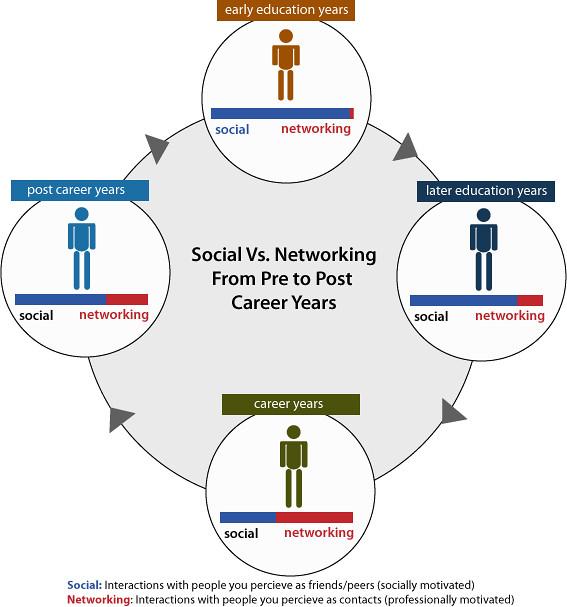If you have ever considered a career in welding, you are in the right place. With 13 years of experience in the field, I am here to guide you on how to become a welder. Whether you are a beginner looking to start a new career path or someone interested in expanding their existing skill set, this article will provide you with the necessary steps and tips to succeed in the welding industry. Let’s dive in and explore the world of welding together.
Table of Contents
- Choosing the Right Welding School
- Mastering Different Welding Techniques
- Gaining Hands-On Experience
- Obtaining Welding Certifications
- Building a Professional Portfolio
- Networking within the Welding Industry
- Q&A
- To Wrap It Up
Choosing the Right Welding School
In the journey to becoming a skilled welder, is absolutely crucial. With so many options available, it can be daunting to navigate through the complexities of the welding education realm. However, fear not, as we are here to guide you towards making the best decision for your future career.
When it comes to selecting the perfect welding school, it is advisable to consider a few key factors. Look for schools that offer a comprehensive curriculum designed to enhance your skills and knowledge in the field. You want a program that goes beyond just the basics and provides hands-on training that will prepare you for real-world welding challenges.
One piece of advice to keep in mind is to not only focus on the cost of the program but also on the quality of education you will receive. While affordability is important, it is equally important to ensure that the school you choose has experienced instructors, state-of-the-art equipment, and a solid reputation within the welding industry.
An alarming number of welding schools out there may promise the moon, but deliver very little. To avoid falling into this trap, do your homework and research each school thoroughly. Look for reviews from past students, check the school’s accreditation, and visit the campus if possible. It’s better to be safe than sorry when it comes to investing in your education and future career.
In conclusion, when seeking more than just a welding education, choose a school that not only provides the technical skills you need but also offers a supportive learning environment. Remember, becoming a skilled welder is not just about mastering the techniques, it’s about gaining the confidence and expertise to excel in the ever-evolving world of welding. So, take your time, compare your options, and choose a welding school that will set you on the path to a successful and rewarding career in welding.
Mastering Different Welding Techniques
is a crucial skill for anyone looking to excel in the field of welding. Learning how to become a welder involves not only understanding the basics but also delving into the nuances of various welding techniques. By mastering these techniques, you can set yourself apart in the industry and open up new opportunities for yourself.
One of the key skills to master is Gas Metal Arc Welding (GMAW), also known as MIG welding. This technique involves using a wire electrode that is fed through a welding gun, along with a shielding gas to protect the weld from contamination. MIG welding is versatile, fast, and offers good control over the welding process. Understanding how to master this technique can give you a competitive edge in the welding world.
Another essential welding technique to master is Shielded Metal Arc Welding (SMAW), commonly known as stick welding. This technique uses an electrode coated in flux to create the weld. Stick welding is versatile, suitable for various applications, and can be used in outdoor environments. Mastering stick welding can make you a valuable asset in the welding industry.
TIG welding, or Gas Tungsten Arc Welding (GTAW), is another technique that aspiring welders should strive to master. TIG welding uses a non-consumable tungsten electrode to create the weld, along with a shielding gas. TIG welding offers high precision and clean welds, making it ideal for intricate projects. By mastering TIG welding, you can take your welding skills to the next level and tackle more challenging projects.
In addition to these techniques, learning how to become a welder also involves honing your skills in welding safety, reading blueprints, and understanding different welding materials. By immersing yourself in the world of welding and continuously seeking to expand your knowledge and skills, you can become a master welder. Remember, becoming a welder is not just a job – it’s a craft that requires dedication, practice, and a thirst for knowledge. So, roll up your sleeves, grab your welding gear, and embark on the exciting journey of .
Gaining Hands-On Experience
To become a welder, is absolutely crucial. There is no better way to learn the ins and outs of welding than by actually doing it yourself. Here are some tips to help you kickstart your journey towards becoming a skilled welder:
1. Take a welding class: Enrolling in a welding class at a local trade school or community college is a fantastic way to get hands-on experience. These classes will provide you with the necessary knowledge and skills to start welding safely and effectively.
2. Volunteer or intern: Consider reaching out to local welding businesses to see if they offer any volunteer or internship opportunities. This hands-on experience will not only enhance your skills but also give you a glimpse into the day-to-day life of a professional welder.
3. Work on personal projects: One of the best ways to gain hands-on experience is by working on personal welding projects. Whether it’s creating metal sculptures, repairing household items, or building a custom piece of furniture, these projects will help you refine your welding skills and build your confidence.
4. Attend welding workshops: Look for welding workshops or seminars in your area where you can learn new techniques and gain valuable hands-on experience. These events are a great way to network with other welders and expand your knowledge in the field.
5. Practice, practice, practice: Like any skill, welding requires practice to master. Set up a welding station in your garage or backyard, and spend time honing your skills. The more you practice, the more comfortable and proficient you will become in the art of welding.
By following these tips and actively seeking out opportunities to gain hands-on experience, you will be well on your way to becoming a skilled welder. Remember, continuous practice and dedication are key to mastering this craft. So roll up your sleeves, put on your welding helmet, and get ready to spark your welding journey!
Obtaining Welding Certifications
Becoming a certified welder is an essential step towards a successful career in the welding industry. Certifications not only validate your skills but also open up opportunities for higher-paying jobs and career advancement. So, how can you obtain these valuable certifications?
First and foremost, it is crucial to undergo proper training from a reputable welding school or training program. These programs offer hands-on experience and in-depth knowledge of welding techniques, safety protocols, and equipment operation. Choosing the right training program is the first step towards becoming a certified welder.
After completing your training, the next step is to gain practical experience through an apprenticeship or internship. These opportunities allow you to apply your skills in a real-world setting under the guidance of experienced welders. Hands-on experience is invaluable when it comes to mastering the art of welding.
Once you have acquired the necessary skills and experience, the next step is to prepare for the certification exam. There are various welding certification tests available, such as the American Welding Society (AWS) certification or the American Petroleum Institute (API) certification. Each certification test has specific requirements and testing procedures, so it is essential to familiarize yourself with the exam format and study accordingly.
On the day of the exam, make sure to stay calm and focused. Remember to follow all safety procedures and welding techniques correctly. Time management is also crucial during the exam, so be sure to allocate enough time for each section of the test.
After passing the certification exam, you will officially become a certified welder. This prestigious title not only validates your skills but also sets you apart from other welders in the industry. With your certification in hand, you can confidently pursue exciting job opportunities and take your welding career to new heights.
Building a Professional Portfolio
as a welder is essential if you want to stand out in the industry. It not only showcases your skills and experience but also demonstrates your commitment to your craft. A well-crafted portfolio can open doors to exciting opportunities and help you advance in your career.
When putting together your portfolio, remember to include a variety of work samples that highlight your expertise. Whether it’s custom metal fabrication, structural welding, or pipe welding, make sure to showcase the breadth of your skills. Including before-and-after photos, project descriptions, and client testimonials can provide a well-rounded view of your capabilities.
In addition to work samples, consider adding any certifications, awards, or professional development courses you’ve completed. These credentials not only validate your expertise but also demonstrate your dedication to continuous learning and improvement. Incorporating a section on your welding equipment and tools can also give potential employers or clients insight into your setup and capabilities.
Networking within the welding community can also help you build a strong portfolio. Attending industry events, joining professional organizations, and connecting with other welders can provide valuable opportunities for collaboration and skill-sharing. Building relationships with suppliers, contractors, and industry influencers can also enhance your portfolio and expand your professional network.
Overall, as a welder requires a combination of skill, creativity, and networking. By showcasing your work, credentials, and connections, you can position yourself as a top candidate for welding jobs and projects. Remember, your portfolio is a reflection of your expertise and passion for welding, so make sure to put your best work forward.
Networking within the Welding Industry
is crucial for anyone looking to excel in this field. By connecting with other professionals, you can gain valuable insights, advice, and even job opportunities. One way to expand your network is by attending industry conferences and trade shows. These events are a goldmine for meeting key players in the welding world.
Another effective networking strategy is to join online communities and forums dedicated to welding. Platforms like WeldingWeb and Reddit’s welding subreddit are great places to ask questions, share tips, and connect with like-minded individuals. You never know when a casual online conversation might lead to a valuable professional relationship.
In addition to attending events and joining online communities, consider reaching out to experienced welders directly. Sending a polite and well-crafted email introducing yourself and expressing your interest in the industry can open doors you never knew existed. Don’t be afraid to ask for advice or mentorship – most professionals are more than willing to help newcomers.
One often overlooked networking opportunity is volunteering for industry-related projects or causes. Not only will you make connections with others who share your passion for welding, but you’ll also gain hands-on experience and potentially impress future employers. Plus, giving back to the community is always a rewarding experience.
In conclusion, building a strong network within the welding industry can significantly boost your career prospects and open up a world of opportunities. Whether you’re a seasoned pro or just starting out, networking is a powerful tool that should not be underestimated. So, get out there, make connections, and watch your welding career soar to new heights!
Q&A
Q: What steps are necessary to become a welder?
A: To become a welder, one must typically complete a vocational training program in welding, obtain certification, and gain hands-on experience through an apprenticeship or entry-level position.
Q: What skills are essential for success in the welding profession?
A: Core skills for welders include attention to detail, manual dexterity, physical strength, and the ability to interpret technical drawings and blueprints.
Q: What types of certifications are available for welders?
A: There are various certifications available for welders, including those issued by the American Welding Society (AWS) and the National Center for Construction Education and Research (NCCER).
Q: What are the potential career paths for welders?
A: Welders can pursue careers in a variety of industries, including manufacturing, construction, automotive, and aerospace. They may also specialize in specific types of welding, such as pipe welding or underwater welding.
Q: What are the job prospects like for welders?
A: Job prospects for welders are generally strong, with a growing demand for skilled professionals in the field. Welders can expect to find employment opportunities in a range of industries and locations.
To Wrap It Up
In conclusion, becoming a welder requires dedication, training, and a commitment to safety. By following these steps and honing your skills, you can build a successful career in the welding industry. Remember, continuous learning and practice are key to becoming a proficient and sought-after welder. Stay up-to-date on the latest technologies and techniques, and always prioritize safety in your work. With determination and hard work, you can achieve your goals and excel in this in-demand profession. Good luck on your journey to becoming a skilled welder!

Leave a Reply